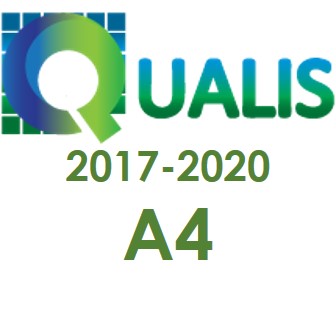Metaphor's conceptualization of a formulaic expression and frame mobilization
DOI:
https://doi.org/10.22481/el.v16i2.4892Keywords:
Metaphorical conceptualization; frame; formulaic expressions.Abstract
In this study, we discuss how the metaphorical conceptualization of a formulaic expression occurs by different individuals based on frame mobilization. From the responses of these speakers to a protocol of metaphorical expressions, we should consider the role of figurativeness in the creation and preservation of the idiomaticity of metaphorical formulaic expressions. We verified that: i) the idiomatic expression interpreted by the two participants of the research mobilizes a single frame, although it emphasizes different elements of it; and ii) aspects related to salience, relevance and relevance seem to be strongly associated with metaphorical conceptualization.
KEYWORDS: Metaphorical conceptualization; frame; formulaic expressions.
Downloads
References
BOTTINI, G.; CORCORAN, R.; STERZI, R.; PAULESU, E.; SCHENONE, P.; SCARPA, P. et al. The role of the right hemisphere in the interpretation of figurative aspects of language. A positron tomography activation study. BRAIN 117, p. 1241-1253, 1994.
CAMERON, L. Patterns of metaphor use in reconciliation talk. Discourse and Society, v. 18, n. 2, p. 197-222, 2007.
CAMERON, L. Metaphor shifting in the dynamics of talk. In: ZANOTTO, M. S. et al. (Org.). Confronting metaphor in use: an applied linguistic approach. Amsterdam: John Benjamins, 2008.
CAMERON, L.; DEIGNAN, A. The Emergence of Metaphor in Discourse. Applied Linguistics, v. 27, n. 4, p. 671-690, 2006.
CHARTERIS-BLACK, Jonathan. Corpus Approaches to Critical Metaphor Analysis. Basingstoke: Palgrave, 2004.
CAZELATO, S. E. A interpretação de provérbios parodiados por afásicos e não afásicos. Tese (Doutorado em Linguística). Universidade Estadual de Campinas, Campinas, 2008.
CAZELATO, S. E. A interpretação de provérbios equivalentes por afásicos: um estudo enunciativo. Dissertação (Mestrado). Universidade Estadual de Campinas, Campinas, 2003.
FERRARI, L. Introdução à Linguística Cognitiva. São Paulo: Contexto, 2011.
GIBBS, R. W., Jr. Idioms and Formulaic Language. In: GEERAERTS, D.; CUYCKENS, H. (eds.). The Oxford Handbook of Cognitive Linguistics. Oxford: Oxford University Press, 2007. p. 697-725.
GIBSS, R. W. The poetics of mind: Figurative thought, language, and understanding. Cambridge: Cambridge University Press, 1994.
GIORA, R. Understanding figurative and literal language: The graded salience hypothesis. Cognitive linguistics, v. 8, n. 3, p. 183-206, 1997.
GIORA, R.; ZAIDEL, E.; SOROKER, N.; BATORI G.; KASHER, A. Differential effects of right-and left hemisphere damage on understanding sarcasm and metaphor. Metaphor and Symbol, v. 15, p. 63-83, 2002.
GLUCKSBERG, S. Understanding figurative language: from metaphors to idioms. Oxford: OxfordPress, 2001.
GRADY, J. Primary Metaphors as Inputs to Conceptual Integration. Journal of Pragmatics, v.37, p.1595-1614, 2005.
GROSS, M. Une classification des phrases “figées” du français. Revue Québécoise de Linguistique, Montréal: UQAM, v. 11, n. 2, p. 151-185, 1982.
KLEIBER, G. Sur les sens des proverbs. Langages, v. 139, p. 39-58, 2000.
KOVECSES, Z. Metaphor: a practical introduction. Oxford: Oxford University Press, 2002.
KOVECSES, Z. Language, Mind, and Culture: A Practical Introduction, Oxford: Oxford University Press, 2006.
LAKOFF, G. Les universaux de la pensée métaphorique: variations dans l´expression linguistique. In: FUCHS, C.; ROBERT, S. (Ed.). Diversité des langues et représentations cognitives. Paris: Ophrys, 1997.
LAKOFF, G.; JOHNSON, M. Philosophy in the Flesh: The Embodied Mind and its Challenge to Western Thought. New York: Basic Books, 1999.
LAKOFF, G.; JOHNSON, M. Metaphors we live by. Chicago: University of Chicago Press: 1980.
LAKOFF, G.; TURNER, M. More than cool reason: A field guide to poetic metaphor. Chicago: Chicago University Press, 1989.
LEEZENBERG. M. Contexts of Metaphors. The Netherlands: Elsevier, 2001.
MORATO, E.M. A noção de frame no contexto neurolingüístico: o que ela é capaz de explicar? Cadernos de Letras da UFF, v. 4, p. 93-113, 2010.
MORATO, E. M.O estudo da metaforicidade no campoda Neurolinguística? velhas questões, novos desafios. In: MOURA, H.M.; GABRIEL, R.. (Org.). Cognição na Linguagem. Florianópolis: Insular, 2012.
MORATO, E. M. O caráter sociocognitivo da metaforicidade: contribuições do estudo do tratamento de expressões formulaicas por pessoas com afasia e com Doença de Alzheimer. Rev. Est. Ling., Belo Horizonte, v. 16, n. 1, p. 157-177, jan./jun. 2008.
MOURA, H. M. M. Desfazendo dicotomias em torno da metáfora. Rev. Est. Ling., Belo Horizonte, v. 16, n. 1, p. 179-200, jan./jun. 2008.
MOURA, H. Relações paradigmáticas e sintagmáticasna interpretação de metáforas. Linguagem em (Dis)curso Linguagem em (Dis)curso – LemD, v. 7, n. 3, p. 417-452, set./dez. 2007.
MOURA, H. M. M. Metáfora: das palavras aos conceitos. Letras de Hoje. Porto Alegre, v. 40, n. 139, p. 20-50. 2005.
MOURA, H. M. M. Linguagem e cognição na interpretação de metáforas. Veredas, v. 10, p. 153-161, 2003.
NUNBERG, G.;SAG, I. A.;WASOW, T. Idioms. Language, v. 70, p. 491-538, 1994.
SALOMÃO, Maria Margarida Martins; TORRENT, Tiago Timponi; SAMPAIO, thaís Fernandes. A Linguística Cognitivia encontra a Linguística Computacional: notícias do projeto FrameNET Brasil. Cadernos de Estudos Linguísticos, v. 55, n.1, , p. 7-34., jan./jun. 2013.
SÉ, E.V.G. Interpretação de provérbios por sujeitos com Doença de Alzheimer. Tese (Doutorado em Linguística). Universidade Estadual de Campinas, 2011.
SEMINO, E. Metaphor in discourse. Cambridge: Cambridge University Press, 2008.
SOARES DA SILVA, A. A Lingüística cognitiva. Uma breve introdução a um novo paradigma em lingüística. Revista Portuguesa de Humanidades, v. I, n. 1-2, 1997.
STEEN, G. Metaphor in applied linguistics: four cognitive approaches. D.E.L.T.A, n. 22, p. 21-44, 2006.
TOMASELLO, M. Origens culturais da aquisição do conhecimento humano. São Paulo: Martins Fontes, 2003.
VEREZA, S. C. Metáfora é que nem...: cognição e discurso na metáfora situada. Signo, Santa Cruz do Sul, v. 38, n. 65, p. 2-21, jul/dez, 2013.
VEREZA, S. Entrelaçando frames: a construção do sentido metafórico na linguagem em uso. Cadernos de Estudos Linguísticos, v. 55, n. 1, 2013a, p. 108-124, 2013.
VEREZA, S. C. O lócus da metáfora: linguagem, pensamento e discurso. Cadernos de Letras da UFF, n. 41, p. 199-212, 2010.
WRAY, A.; PERKINS, M.R. The functions of formulaic language: An integrated model. Language & Communication, v. 20, p. 1-28, 2000.
Downloads
Published
How to Cite
Issue
Section
License

Estudos da Língua(gem) is licensed under a Creative Commons Attribution 4.0 International License.
Authors who publish in the journal Estudos da Língua (gem) agree with the following terms:
The journal Estudos de Língua(gem) maintains the copyrights of the contributions published. These rights include the publication of the contribution and make its content available for free through the portal.













